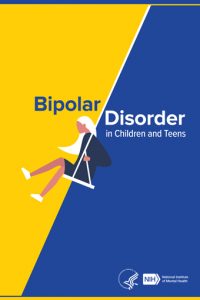Medline Plus: Medical Information Resource [web resource]
 MedlinePlus is the National Institutes of Health‘s Web site produced by the National Library of Medicine, the world’s largest medical library. Read more »
MedlinePlus is the National Institutes of Health‘s Web site produced by the National Library of Medicine, the world’s largest medical library. Read more »
 As the most common learning disability in the U.S., dyslexia affects somewhere between 5 and 17 percent of the population. In a five-part special series, National Public Radio (NPR) explores dyslexia. Read more »
As the most common learning disability in the U.S., dyslexia affects somewhere between 5 and 17 percent of the population. In a five-part special series, National Public Radio (NPR) explores dyslexia. Read more »
Which emotions do you associate with males that define masculinity? How well do you handle emotions such as sadness, frustration, vulnerability, shame, or fear?
This presentation discusses emotional development and the emotional development of boys and men. Learn about some of the myths regarding emotional development and how parents can help their sons to both express and manage emotions in this presentation by Chris Harris, M.Ed and Brandon Carlton, Behavior Specialist. Read more »
 Trying to tell the difference between what expected behaviors are and what might be the signs of a mental illness isn’t always easy. There’s no easy test that can let someone know if there is mental illness or if actions and thoughts might be typical behaviors of a person or the result of a physical illness.
Trying to tell the difference between what expected behaviors are and what might be the signs of a mental illness isn’t always easy. There’s no easy test that can let someone know if there is mental illness or if actions and thoughts might be typical behaviors of a person or the result of a physical illness.
Each illness has its own symptoms, but common signs of mental illness in adults and adolescents can include the following… Read more »
 Does your child go through extreme changes in mood and behavior? Does your child get much more excited or much more irritable than other kids? Do you notice that your child goes through cycles of extreme highs and lows more often than other children? Do these mood changes affect how your child acts at school or at home? Read more »
Does your child go through extreme changes in mood and behavior? Does your child get much more excited or much more irritable than other kids? Do you notice that your child goes through cycles of extreme highs and lows more often than other children? Do these mood changes affect how your child acts at school or at home? Read more »
 Suicides affect millions every year, and the American Foundation for Suicide Prevention has assembled a number of resources to help survivors cope with suicide loss. The I’ve Lost Someone section of the AFSP site contains practical information to help you through the first few days after a loss, how to take care of yourself physically, emotionally, and spiritually, and lists some options for connecting with other survivors for support.
Suicides affect millions every year, and the American Foundation for Suicide Prevention has assembled a number of resources to help survivors cope with suicide loss. The I’ve Lost Someone section of the AFSP site contains practical information to help you through the first few days after a loss, how to take care of yourself physically, emotionally, and spiritually, and lists some options for connecting with other survivors for support.
AFSP also provides recommendations for books, stories and films for loss survivors: Read more »
 This presentation reviews non-medication intervention strategies for children with ADHD and executive functioning challenges. Learn more from CHC’s Ramsey Khasho, Psy.D about ADHD and executive functioning and the types of behavioral strategies you can employ to improve attention and promote executive functioning. Read more »
This presentation reviews non-medication intervention strategies for children with ADHD and executive functioning challenges. Learn more from CHC’s Ramsey Khasho, Psy.D about ADHD and executive functioning and the types of behavioral strategies you can employ to improve attention and promote executive functioning. Read more »
 It’s not unusual for young people to experience “the blues” or feel “down in the dumps” occasionally. Adolescence is always an unsettling time, with the many physical, emotional, psychological and social changes that accompany this stage of life.
It’s not unusual for young people to experience “the blues” or feel “down in the dumps” occasionally. Adolescence is always an unsettling time, with the many physical, emotional, psychological and social changes that accompany this stage of life.
Unrealistic academic, social, or family expectations can create a strong sense of rejection and can lead to deep disappointment. When things go wrong at school or at home, teens often overreact. Many young people feel that life is not fair or that things “never go their way.” They feel “stressed out” and confused. To make matters worse, teens are bombarded by conflicting messages from parents, friends and society. Read more »
Trying to tell the difference between what expected behaviors are and what might be the signs of a mental illness isn’t always easy. There’s no easy test that can let someone know if there is mental illness or if actions and thoughts might be typical behaviors of a person or the result of a physical illness.
Watch this video to learn the common signs of mental illness… Read more »
Project Cornerstone’s programs and services help individuals and communities build a web of support around young people so that they grow into healthy, caring and responsible adults.
Anne Ehresman, LCSW, Executive Director of Project Cornerstone presents this class in which she reviews adolescent brain development, explains the concepts of a “growth mindset” versus a “fixed mindset,” and discusses developmental assets, Project Cornerstone’s framework for positive youth development. Read more »